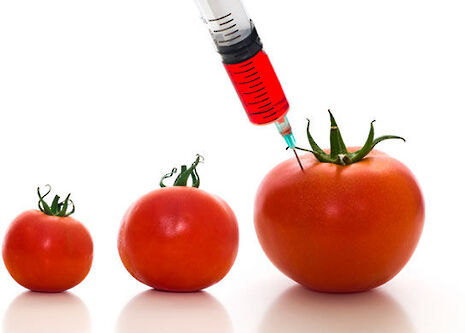Talk: Is the future of food GM?
As the Festival of Ideas continues, Jessica Donnithorne discusses whether the public should be accepting the technology involved with food production

As part of the Festival of Ideas the Law Faculty played host to a fascinating talk on the future of GM crops. Guest speakers Professor Sir David Baulcombe (CU, Botany), David Nally (CU, Geography) and Jack Stilgoe (University of Exeter, Science Policy) shared their different perspectives on this highly complicated multi-disciplinary issue.
David Nally opened the debate by introducing two key points: firstly, chronic famine and hunger are not the result of a shortage of food in the world, but rather of a distribution problem arising from global politics. Secondly, GM technologies are not necessarily being used for the good of mankind; they can also be exploited for profit by the same large corporations that would claim to be solving the problem of third world hunger.
Professor Sir David Baulcombe echoed Nally’s opening statements about the multi-fold nature of the world hunger problem before focusing on environmental sustainability. There is enough food in the world, but it is being produced on the back of unsustainable agricultural practises which threaten to jeopardise our ability to continue the same levels of production in the future. According to Sir Baulcombe, third generation GM crops present the possibility of creating a radically different agriculture system. Nevertheless, such developments have to address the dangers of unforeseen environmental effects as well as gaining the public’s acceptance.
Finally, Jack Stilgoe continued this discussion of public acceptance in further depth. The GM crop issue has often been depicted by the media as a battle between science and anti-science but the public’s concerns are, unsurprisingly, less clear-cut. The question is less about the pros and cons but rather about the conditions under which the public find GM crops acceptable and unacceptable. The British government were very enthusiastic in promoting GM crops in the 90s but it didn’t catch on. Meanwhile, the global uptake of the technology is astonishing.
In an ever-changing world, one thing is clear: the social, political, economic and ethical questions surrounding GM crops are ones which must be subject to constant re-evaluation if the technology is to follow a safe and controlled trajectory into the future.
 Interviews / ‘People just walk away’: the sense of exclusion felt by foundation year students19 April 2024
Interviews / ‘People just walk away’: the sense of exclusion felt by foundation year students19 April 2024 News / Copycat don caught again19 April 2024
News / Copycat don caught again19 April 2024 News / John’s spent over 17 times more on chapel choir than axed St John’s Voices22 April 2024
News / John’s spent over 17 times more on chapel choir than axed St John’s Voices22 April 2024 News / Climate activists smash windows of Cambridge Energy Institute22 April 2024
News / Climate activists smash windows of Cambridge Energy Institute22 April 2024 Theatre / The closest Cambridge comes to a Drama degree 19 April 2024
Theatre / The closest Cambridge comes to a Drama degree 19 April 2024





